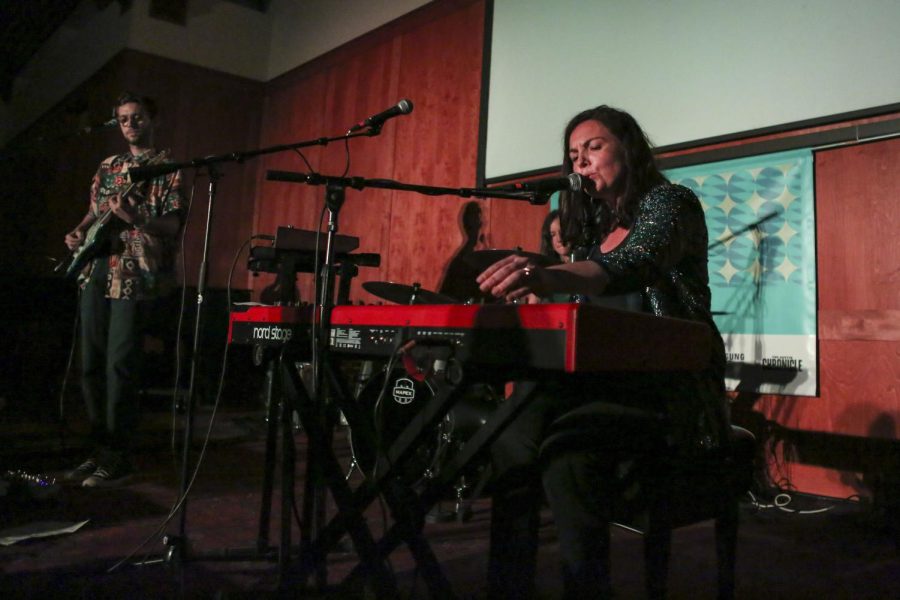Australian singer-songwriter Eliza Hull discusses her music, disability, platform
March 21, 2022
Australian singer-songwriter Eliza Hull traveled across the globe to perform her music and host a panel discussing the future of accessibility in the music industry at South by Southwest.
Ahead of her panel Friday and her final show Saturday, The Daily Texan spoke with Hull about her career and advocacy platform.
The Daily Texan: How did you decide that singing and music was something you wanted to pursue?
Eliza Hull: When I was five years old, I started falling over at school, and my parents didn’t know what was happening. They took me to the hospital, and, at that time, I was diagnosed with something that would be terminal. Eventually, I was diagnosed with a condition called Charcot-Marie-Tooth.
It affects the way I walk, and, even though visibly that’s the most noticeable part of my disability, it affects my whole body. There’s a lot of visible and invisible (symptoms). At that time, I was asked to sing in a local competition at school, and I won a gold medal. I was really confused about what was happening to my body, and singing was incredible. (Singing felt like) relief and validation. … I started writing songs when I was 15, and I haven’t stopped (since).
DT: What goes into your creative process in terms of songwriting?
EH: I really just write about my own lived experiences. A lot of my songs recently are about disability, but not with the word disability in it, more of uncovering who I am, self-acceptance, letting the past go, coming forward and being proud.
DT: How has your experience with accessibility when performing at venues at SXSW this week been?
EH: I found it hard — it’s tiring. It’s just (questions like), “How do you get around? How do you get inside the venue? How do you get onto stage?” All of those things add layers of barriers which add layers of fatigue and pain. I don’t necessarily think that’s anyone’s fault because we’re dealing with buildings that haven’t been built (with accessibility in mind). This is an entrenched world of discrimination barriers, (but) I think that there is change happening.
DT: On a personal level, where do you see the future of accessibility and music spaces coming from?
EH: First of all, conversation, and questions like, “How can we assist you? What are your access needs?” These very simple questions that often get left behind, … if they’re thought about, we can start making the changes.
If you have a ramp up to a stage, you’re inviting a lot more people into the music industry. For me, it’s a win-win situation. Greater representation (is important) as welI. I remember as a teenager, watching the ARIA awards — which is like the Grammys in Australia — my favorite band was winning, and I knew I could potentially reach that in terms of my career, but I remember watching the awards, and this particular band won several and ran up a flight of stairs to receive their award. There was no railing on the stairs, and I just thought as a teenager, “I can’t even win that award because I wouldn’t be able to get up onto the stage.” The messaging that we tell ourselves is really strong, and it feeds into our reality. My hope is that (award shows) have accessibility at the forefront of their mind, and they have a ramp up on the stage — even if a disabled artist is not nominated, because it’s the messaging that, “This is the space you’re invited to, and this is going to be accessible for you, and if it’s accessible for you, it’s possible for you.”
DT: What do you hope to leave with the audience coming to your panel?
EH: Disability is not a negative thing. It’s not a deficit. It’s not something to be feared, and the words “disability” and “disabled” are not bad words. We need to make change here — the time is now to shift attitudes for greater representation.












